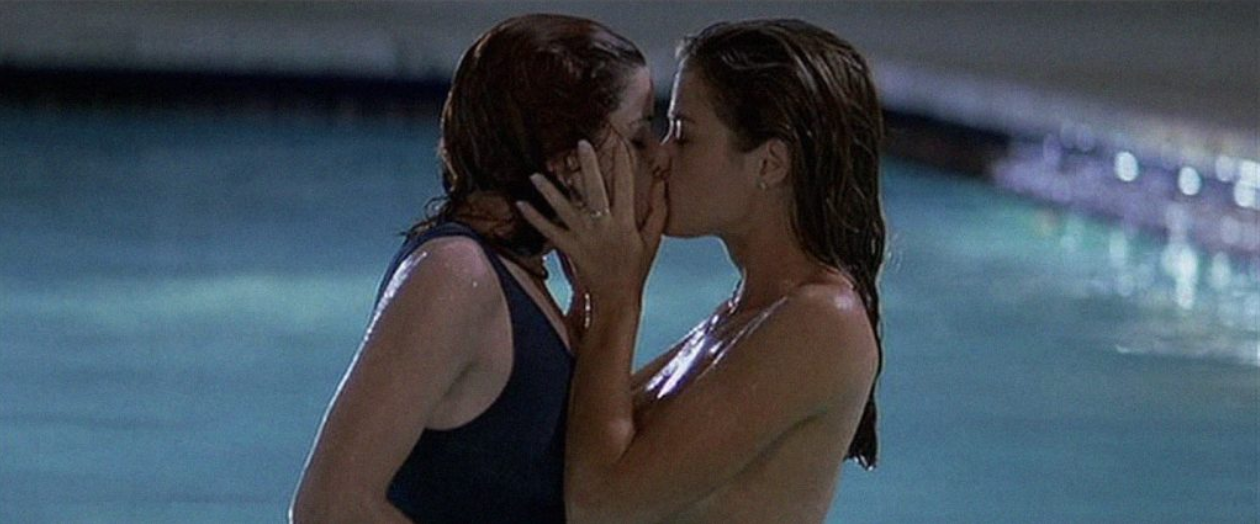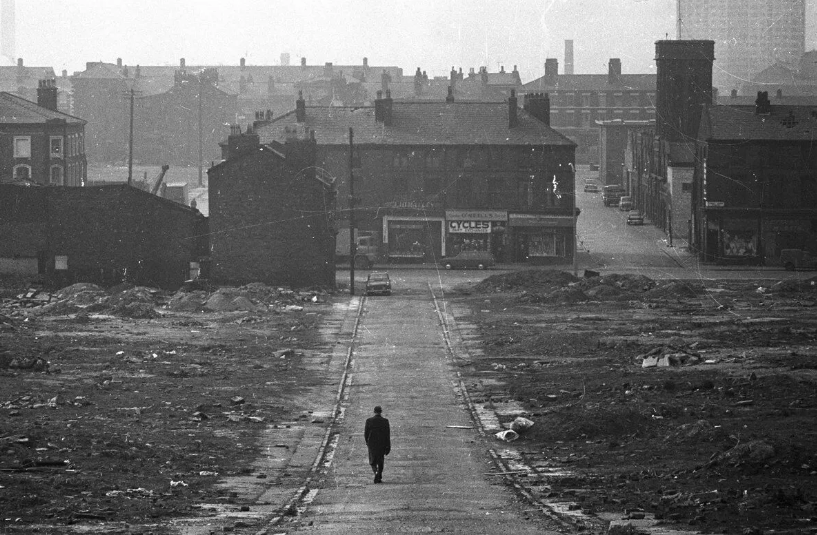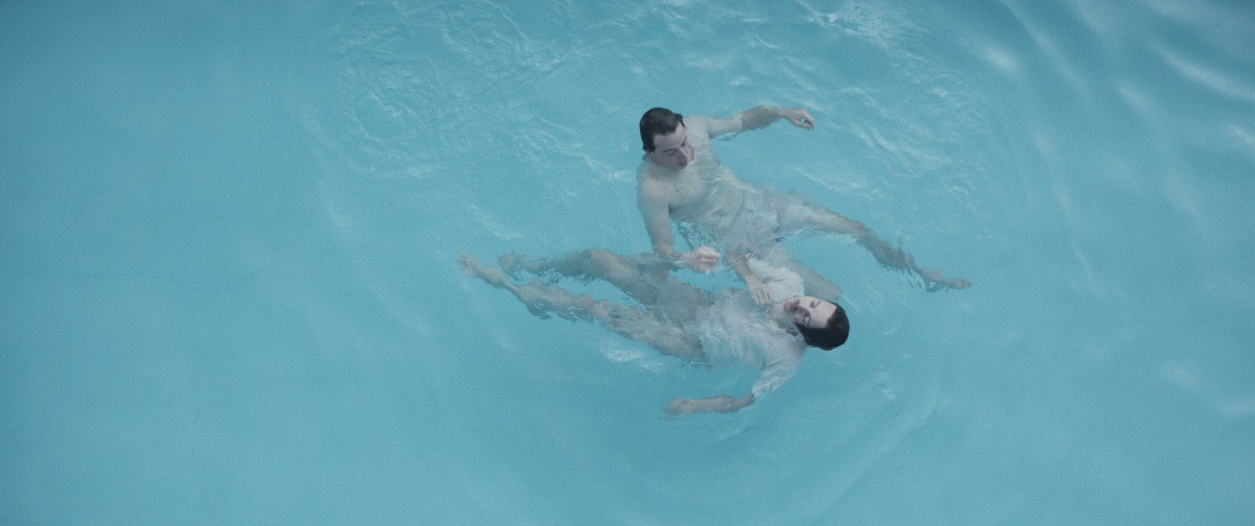(John McNaughton, 1998, USA, 114 minutes)
Since April, I've been listening to Karina Longworth's You Must Remember This podcast series on "Erotic '80s." So far, she's covered movies like 10, American Gigolo, Body Heat, and Risky Business. When Longworth wraps up this season, she plans to take a break before returning with "Erotic '90s." I have no idea if she'll cover John McNaughton's 1998 erotic thriller Wild Things when she returns, but I hope she does.
Granted, the Chicago-born McNaughton didn't start out as a director of erotica. No, he made a name for himself with 1986's disquieting Henry: Portrait of a Serial Killer, which introduced the world to Michael Rooker's uniquely uncharismatic brand of charisma as a matter-of-fact murderer.
I recently revisited McNaughton’s debut after a gap of over 30 years. To my surprise, I found that some of the same crew members, like editor Elena Maganini and producer Steven A. Jones, also worked on Wild Things, among other McNaughton pictures. It's unexpected, because he had specifically intended to make the 1998 movie blatantly commercial. That doesn't describe the grubby, nihilistic, yet subversively funny Henry in the slightest.
Killers would turn out to be a McNaughton specialty. If they don’t appear in every film or TV show, they appear in quite a few, like 1996's Normal Life, which took inspiration from the lives of ill-fated Chicago bank robbers Jeffrey and Jill Erickson. Wild Things has more reputable-looking characters, but when push comes to shove, several of them end up wielding deadly weapons, from wine bottles to spear guns.
Men with guns even appear in McNaughton's more lighthearted affairs, like 1993's Mad Dog and Glory, a crime comedy I long avoided due to the off-putting title and problematic premise: mobbed-up club owner and standup Frank (Bill Murray) "gifts" cop Wayne/Mad Dog (Robert De Niro, then 50) young waitress Glory (Uma Thurman, 26) as a thank-you for saving his life.
The movie turns out to have a lot going for it, like writing from novelist Richard Price (Clockers), a classy score from Elmer Bernstein (Sweet Smell of Success), and burnished cinematography from Robby Müller (To Live and Die in LA), but none of it makes the premise any less problematic.
Naturally, the cop, who dreams of being a photographer, and the bartender, who once dreamed of being an actress, fall in love. First, they have sex, even though she insists she isn't a sex worker (I'll credit McNaughton for the more-awkwardly-realistic-than-usual sex scenes). Frank claims that he had only intended Glory to be the lonely Wayne's "friend" for a week.
In the new interview included with Arrow's Wild Things Blu-ray, McNaughton recalls that he needed a hit--Normal Life had come and gone without a trace--so he started by asking himself, "What sells?" The answer: "Sex and violence." This film springs from that basic idea. Granted, he had been down that road before with his previous films, but he really ups the ante here.
Throughout, McNaughton fucks with the audience, since Stephen Peters' script revolves around situations that aren't what they appear to be, much as in The Usual Suspects. Then, during the closing credits, he shows what actually happened. I pity anyone who left the theater, or stopped the video, without finding out how the characters pulled off their various schemes.
Sam Lombardo (Matt Dillon, replacing the unavailable Robert Downey, Jr.), guidance counselor at a tony high school in South Florida, initially seems like a decent guy. Adults respect him and kids can relate to him, but it quickly becomes apparent that he's an incorrigible ladies man.
It's not just that he had an affair with wealthy widow Sandra Van Ryan (a perfectly cast Theresa Russell), but he spends an inappropriate amount of time with her daughter, Kelly (Denise Richards, fresh from a starring role in Starship Troopers), a smiley, flirty cheerleader who offers to wash his jeep with a similarly-underdressed pal for a school project. McNaughton shoots the soapy sequence like a cross between a hair metal video--think Whitesnake's "Here I Go Again"--and a skin flick.
Granted, Sam fends off her advances in favor of an age-appropriate socialite who frequents the Blue Bay country club, but then Kelly accuses him of rape, and the noirish plot kicks into gear. Did he do it, or is she lying? If so, is she jealous of Sandra, who still lusts for Sam, or of his current squeeze?
McNaughton doesn't let anyone off the hook. Any character could be lying at any time. It's to the cast's credit that they play it straight. There's no winking at the audience, but there's no way the actors didn't notice the ridiculousness, because there are twists on top of twists on top of twists.
After Suzie Toller (Neve Campbell in goth-punk mode) also accuses Sam of rape, he ends up in jail, but then she tells a different story on the witness stand. The new narrative makes Kelly look like a liar, but it's too late for Sam to get his job, home, girlfriend, and reputation back (and even if his girlfriend wanted to keep seeing him, her judgmental attorney father, played by an intimidating Robert Wagner, wouldn't let her).
Any upstanding citizen would be bereft, except Sam is about as sympathetic as the ill-starred social climber in Theodore Dreiser's 1925 novel An American Tragedy, who drowns his pregnant, working-class girlfriend when someone prettier--and richer--comes along. In this case, Sam receives a hefty settlement for his troubles. He may be homeless, but a motel room serves as an ideal spot for a three-way with his two favorite students.
You can guess their names and whether or not this windfall came about through happenstance. And that might be the end of that, except the characters aren't as clever as they think. That includes Det. Ray Duquette (Kevin Bacon), who McNaughton had introduced in the opening sequence when he speaks at a Blue Bay High senior seminar on sexual assault.
Upon learning of the $8.5 million payday, Duquette spies on Kelly and Suzie to determine if they were in on the scam, doing so in a way that suggests he's more of a sleazy voyeur than a dedicated detective. McNaughton rewards him for his efforts when he catches the ladies in a poolside clinch (if Richards has several topless scenes, Campbell's Party of Five contract included a no-nudity clause to which McNaughton adheres).
Later in the film, Sam and Duquette end up in a hotel room. It's a surprise reveal, so I'll spare the context, but the film's notoriety rests more on this sequence than on the situational lesbianism, which appears in other McNaughton films, like Showtime's Girls in Prison for which both Ione Skye and Anne Heche went topless (Ashley Judd did the same in Normal Life).
There's a moment when Duquette steps out of the shower and wraps a towel around his waist for a conversation with Sam. Though McNaughton hadn't planned to include a full-frontal shot, he had originally intended to imply a sexual relationship between the two men until the studio balked.
He got his revenge in an unexpected way: when editor Elena Maganini, who had been working with him for 12 years by that point, noticed that Bacon's towel slipped in one take, that's the one she chose, telling McNaughton that he always featured naked women in his films. It was time to switch things up.
Consequently, there are two versions of the film, the theatrical and the unrated edition. Arrow's Blu-ray includes both. Alas, Bacon, who produced the picture, was besieged by questions about his nude scene throughout the initial press tour, which must have gotten exhausting, but also proves how rare male nudity was in mainstream American cinema in the 1990s (those who think it's just as bad today probably missed Alex Garland's Men, in which Rory Kinnear spends a significant portion of the film without a stitch of clothing--and not just for a few, blink-and-you-missed-it seconds).
Wild Things distinguishes itself from previous McNaughton films in another crucial respect, and it's why the film holds up better than I would've expected (I didn't see it upon its original release). If Sam and Suzie are outsiders by Blue Bay standards, they're still white. Duquette's partner, Gloria Perez (Daphne Rubin-Vega, just off a run on Broadway's Rent) is not.
Gloria is the smartest person in the film, and that includes Bill Murray's strip-mall lawyer, Kenneth Bowden, who brings some low-key humor to the proceedings. She smells a rat from the start, beginning with Kelly's rape accusation, which she doesn't buy. She continues to believe something is off, but can't prove it, not least because her partner isn't being forthcoming. Even after the rape and murder cases have been solved, the verdicts don't ring true, so she investigates on her own time, concluding that every character, most of whom end up dead, was lying.
If it wasn't clear at the outset, she's the film's true lead, in a manner of speaking, since we see most events from her perspective. We may also suspect schemes upon schemes, but we don't know exactly what's going on, which McNaughton reveals during the closing credits. For better or for worse, audience testing shaped these reveals when the studio found that viewers liked Suzie and Kenneth the best, so McNaughton filmed a new scene with the two. Though it further untangles the twisted plot, it makes Kenneth look dirty, which he had never intended. In a sign of the times, Columbia gave McNaughton $890,000 to shoot this extraneous scene.
All told, Wild Things is a product of a different time, and though it may seem like a stretch to describe it as a personal project, I don't believe it was merely the "sex and violence" that attracted McNaughton, but the idea of lower-class people struggling--and failing--to join the upper class.
As McNaughton notes in interviews, including Arrow's Blu-ray exclusive, he grew up on Chicago's South Side. It was never a given that he would become a Hollywood director, and there's a thread running through his work of the relatively disadvantaged trying to better themselves through legitimate means before turning to crime out of desperation--and paying the price. If he has sympathy for these people, and I believe that he does, it's because he knows the system is rigged against them.
As for Gloria, Blue Bay's hoi polloi may never fully accept her, but she has one trait that sets her apart in ways that go beyond the physical: she doesn't care. She's the best kind of detective, because she isn't driven by anger or agenda. She just wants to get at the truth, and so she does. In a world of churning immorality, she's the film's calm, moral center.
Though Wild Things concludes with one not-born-rich character literally sailing off into the sunset with their ill-gotten gains, Gloria remains with her feet on the ground, more cynical about her adopted town perhaps, but thoroughly uncorrupted by all the secrets and lies she has uncovered.
Notably, she has even stopped straightening her hair, a suggestion that she's more fundamentally herself than before. There's no point in trying to fit in with people don't see you for who you are, so why bother? Life's too short.
7/6/25 update: click here for Karina Longworth's episode on the film.
Wild Things is available on Blu-ray via Arrow Video and streaming through the usual pay operators. Images from Geoffrey Lapid (Matt Dillon), Bloody Disgusting (Michael Rooker), Film Affinity (Robert De Niro), Eighties Kids (Dillon and Denise Richards), Poseidon's Underworld (Dillon and Kevin Bacon), and Creepy Catalog and 10k Bullets (Daphne Rubin-Vega).

























